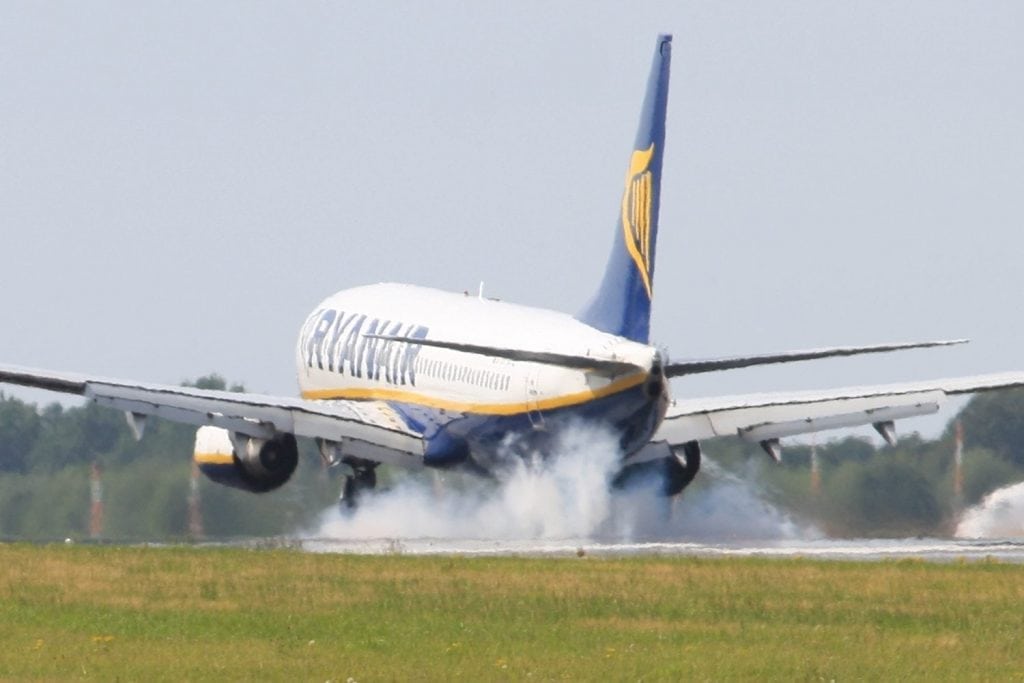Skift Take
It's been a difficult few months for Ryanair, with many of its problems showing no sign of abating. Still, Ryanair remains in robust financial health. And if fuel prices keep rising and capacity doesn't fall, we should expect it to come out on top.
Ryanair has endured a pretty torrid summer with air traffic control strikes, increasing fuel prices and overcapacity in the European aviation market each taking their toll.
Pre-tax profits fell 22 percent to $404 million (€345 million) in the first quarter of its financial year and many of the problems affecting the airline are not likely to go away quickly.
Still, Ryanair remains in a better position than most to absorb the costs of a more competitive operating environment.
In the first quarter of its financial year, Ryanair flew 37.6 million passengers, an increase of 7 percent on the prior year but average fares fell fare fell 4 percent to $42.90 (€38.68).
For Ryanair it doesn’t matter so much that fares are going down — it can afford that — as long as load factors remain high. The airline employs a “load factor active — yield passive” policy, where it prices seats to hit targets.
In the first quarter, Ryanair’s load factor remained at 96 percent with revenue up 9 percent to $2.4 billion (€2 billion).
Summer of Strife
On a slide in its investor presentation, Ryanair listed a whole range of challenges that are affecting its operations. Some are specifically related to the airline, while others are industry-wide.
A series of air traffic control strikes and shortages led to Ryanair canceling more than 2,500 flights in the three-month period between April and June. This meant a “a loss of higher yielding weekend traffic” and a rise in costs associated with the EU261, the European Union’s flight compensation ruling.
Ryanair is also still battling with labor unrest in a number of its markets. Strikes have occurred in Ireland and there are also threats of walkouts in Spain, Portugal, and Belgium.
Although Ryanair said the impact had been limited it warned that it could move aircraft away from the more disruptive bases.
“If these unnecessary strikes continue to damage customer confidence and forward prices/yields in certain country markets then we will have to review our winter schedule, which may lead to fleet reductions at disrupted bases and job losses in markets where competitor employees are interfering in our negotiations with our people and their unions,” the airline said.
“We cannot allow our customers flights to be unnecessarily disrupted by a tiny minority of pilots.”
Perhaps more worrisome for Ryanair are the problems surrounding its recent investment in Austrian carrier LaudaMotion. In May, Ryanair said it expected LaudaMotion would need “almost €100m [$117m] in start-up costs, and operating losses over the next 2 years”, it has now revised its forecast with LaudaMotion expected to “lose approx. €150m [$176m] in its first very difficult year, but these results will improve substantially to break even by year 3 of operations.” Ryanair blamed this on lower fares and a disagreement with Lufthansa.
The Daily Newsletter
Our daily coverage of the global travel industry. Written by editors and analysts from across Skift’s brands.
Have a confidential tip for Skift? Get in touch
Tags: europe, labor, low-cost carriers, ryanair
Photo credit: A Ryanair aircraft. The airline has suffered a difficult financial quarter. Andrew Thomas / Flickr
